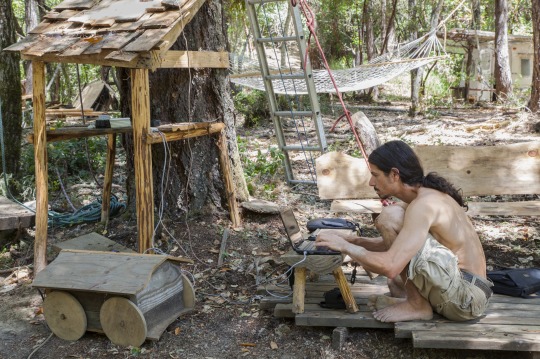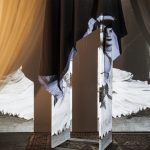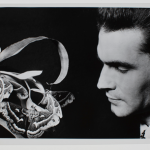Conversations | Ruth Dusseault’s “Ecotopia”
The multidisciplinary artist considers millennials who live off the grid, but with technology, in exploratory documentary project.
Beginning in 2012, still in the wake of the economic collapse, multidisciplinary artist Ruth Dusseault began to record a radical segment of Generation Y that had walked away from consumer culture in an attempt to live “outside” of it. Unlike their 1960s countercultural predecessors, they brought their laptops and cell phones. She was inspired by Andre Codrescu’s essay “The Disappearance of the Outside,” which he wrote in 1990 when the internet became ubiquitous. She quotes him as saying: “Every human being living now can see the shrinking of the world and feel the effects of relentless metering.”
Dusseault’s Fiscally Sponsored project “Ecotopia” explores technology-enabled communities in the U.S. and Canada and ponders a new type of peer-to-peer survival school. Learn more about the documentary project in NYFA’s interview below, and view samples of “Ecotopia” here on Vimeo. The film will screen at the International Free Thought Film Festival on September 22, 2019 in Pittsburgh, PA.
NYFA: Ecotopia grew out of a photographic project documenting millennials who live “off the grid” yet are tethered to the internet to build their communities. What made you want to expand your work beyond photography into experimental documentary film and installation?
Ruth Dusseault: When I showed the still photographs, they instigated these long conversations which I loved, but I wanted the dialog to happen between the viewer and the subjects. So, I began to ask the subjects to talk about themselves.
Their interviews were quite philosophical and didactic. I wove them into an edit with my personal and poetic departures. The pieces evolved into these floating meditations on ideas, conflicts, and comparisons with handmade backdrops and compelling social actors. They became essay films. As experimental works, the possibilities for presentation expanded. In the gallery showing, The Creatives, I used a multi-channel video and sound installation.
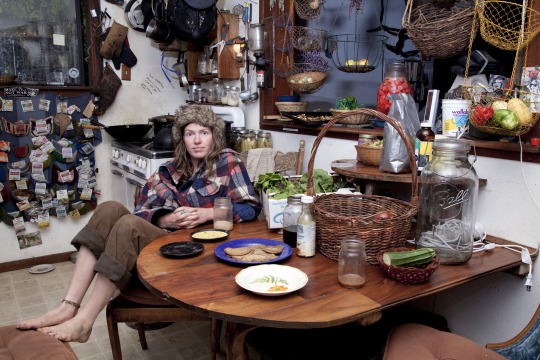
NYFA: How has your background in psychology and journalism informed “Ecotopia” and the questions that you ask?
RD: The history of psychology is rooted in structuralist thinking, a way of framing our beliefs and perceptions within the context of other systems. Behaviorism and cognitive theory seemed to explain things to me; they modeled the mind.
Journalism is reporting, a kind of compact delivery system. With a report, the viewer is handed something to take home and ponder. Like dry ingredients, they expand as we live with them and they simmer into being. Nowadays, I watch journalists like they are artists who carefully tease strands of truth from this growing wad of unstructured reality.
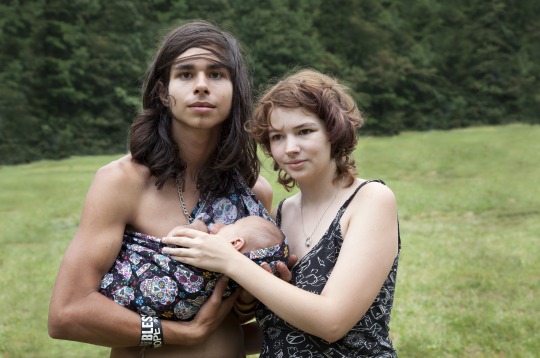
NYFA: What does it mean for you to utilize “ethnography” in your work?
RD: Ethnography is the study of groups. Personally, I am fascinated by groups of people that find each other online and gravitate from across the globe to meet at a GPS location in the middle of nowhere. It’s a phenomenon of the present. It has never happened before. It should be recorded.
NYFA: How do you address “digital utopia” in your project?
RD: The term “digital utopianism” is borrowed from the films of Adam Curtis and the writings of Fred Turner, as well as the scholarly work of Andrew Blauvelt and Felicity Scott. In different ways, they each address the social and political hazards of positivism, the idea that there is technical or scientific solution to everything, as in the high-tech engineering sector. In this project, I am pondering how “digital utopianism” bleeds down from corporate campuses, through our personal devices, into the middle class and the middle states. How do those belief systems manifest in our thoughts and actions? And how do they affect our perceptions about the future?
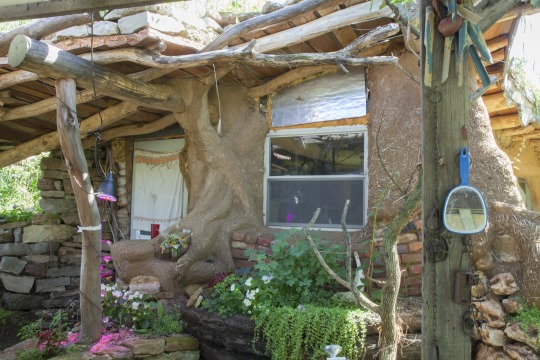
NYFA: What sorts of mechanisms and experiments do the remote-maker communities create?
RD: All necessities—from wind and solar power-grids, composting toilets, straw bale homes, buildings from recycled tires, water-collecting roofs, permaculture farms, and brown-water irrigation systems to furniture, musical instruments, wooden spoons, soap, honey, buckskin coats, and goat cheese. Some people are enacting a kind of frontierism, like the 60′s back-to-the landers. Others, like Open Source Ecology, are experimenting with small-scale industrialism and artisan economics.
NYFA: As you’re documenting and interviewing individuals in these communities, how much did you embed yourself into the community’s day-to-day?
RD: I stayed for as long as I could afford, never less than two days, sometimes a week or more. I would return periodically over the years to some places. I wanted to give them the stage as much as possible, yet convey my experience of being with them. They think deeply about difficult things, and I admire them for that.
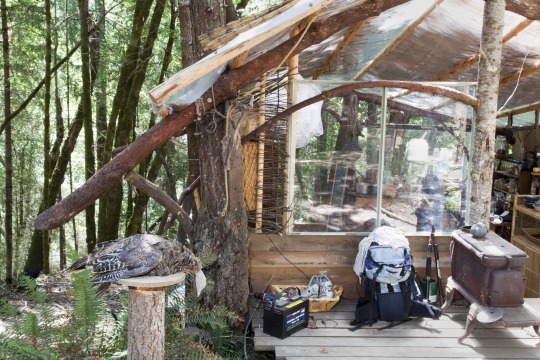
NYFA: Through your interviews and from observing these communities, is there anything you took away yourself that you felt like the larger society as a whole could gain from?
RD: Today, the archive is immanent. We use Google to complete our sentences. History has been flattened into meta tags and attached to our ankles like shadows. As a result, we see these new kinds of educational entrepreneurs. They can help us think about stepping down into a smaller life. Or, their amateur radical experiments can inform design and help us imagine alternatives to the serfdom of becoming an Amazon Fulfillment Ambassador.
NYFA: Why did you choose NYFA Fiscal Sponsorship?
RD: I feel like you chose me! You immediately understood the dialogue present in this project. It’s difficult for some audiences. There needs to be more nuanced conversations today, but they can’t happen without credible support like NYFA’s.
– Interview Conducted by Priscilla Son, Program Officer, Fiscal Sponsorship & Finance
Are you an artist or a new organization interested in expanding your fundraising capacity through NYFA Fiscal Sponsorship? We accept out-of-cycle reviews year-round. No-fee applications are accepted on a quarterly basis, and our next deadline is September 30. Click here to learn more about the program and to apply. Sign up for our free bi-weekly newsletter, NYFA News, for the latest updates and news about Sponsored Projects and Emerging Organizations.
Images: Gil on Computer, Praxis, California, 2012; Aubrey in Kitchen, Green Valley Village, California, 2012; Adam and Eve, Firefly Skill Share, North Carolina, 2015; Mud House Patio, Dancing Rabbit Ecovillage, Missouri, 2015; and Praxis Kitchen and Turkey, California, 2012. All Images Courtesy: Ruth Dusseault.

